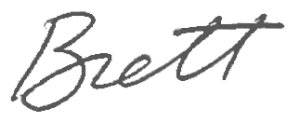If our phone counts the number of steps we take, then we need to carry our phone everywhere we go in order to get credit. Before we pick a movie we have to check the scores on Rotten Tomatoes. As we read bedtime stories to our children we skip unnecessary paragraphs.
Efficiency is ruining our lives, and we are looking for more of it. Every day is an exercise in logic. We have found more efficient ways to do most things—electric toothbrushes, electric razors, driverless cars. Buying a Big Mac is simpler than cooking a hamburger on the grill. Permanent press makes all kinds of sense. We find one pair of shoes we like and order multiple pairs online. We may never go into a shoe store again.
Why spend an hour making dinner when we could microwave lasagna in nine minutes? Why vacuum when we can check our email as the rumba wanders around the living room?
How long will it be before we live like “The Jetsons”—calling for Rosie the robot maid to bring our coffee and Astro the robot dog to fetch our slippers? We just need more moving sidewalks.
What do we lose when we do only what is most efficient? What are we doing with the time we are saving? Do the Amish have a point?
Our commitment to convenience keeps us from thinking about what we really want. When we have a dishwasher, washing dishes by hand feels silly—even if we like washing dishes. We ignore what is best in favor of what is easiest, but the fastest way to get where we are going may not be the best way to get there. When we let efficiency decide what we do, we no longer decide what we do.
Sometimes we need to ignore what is efficient and do what is fun. Take the scenic route. Eat a Moon Pie. Grow flowers. Sit on the grass. Play the guitar. Write a letter.
Go to a school play. Tell someone that you love them. Listen to music—and not the music we play when we want people to think we have good taste—the music that makes us smile. Go to lunch with a friend. Read an extra story—even if it goes five minutes past bedtime.
My doctor looked at the scale and asked, “How much are you exercising?”
Lying to your doctor is like lying to your mother—she knows.
“I run a little, jog really, saunter.”
“Where do you run?”
“Down the street, across the bridge, to the park and back.”
“Your knees are getting older. You need to start running on a treadmill. It’s more efficient.”
I think about my doctor as I jog across the Brooklyn Bridge. It has to be better for me to see the world at five miles an hour than to spend another hour running in place. I am confident that I will not come to the end of my life and say, “I wish I had been more efficient.”
